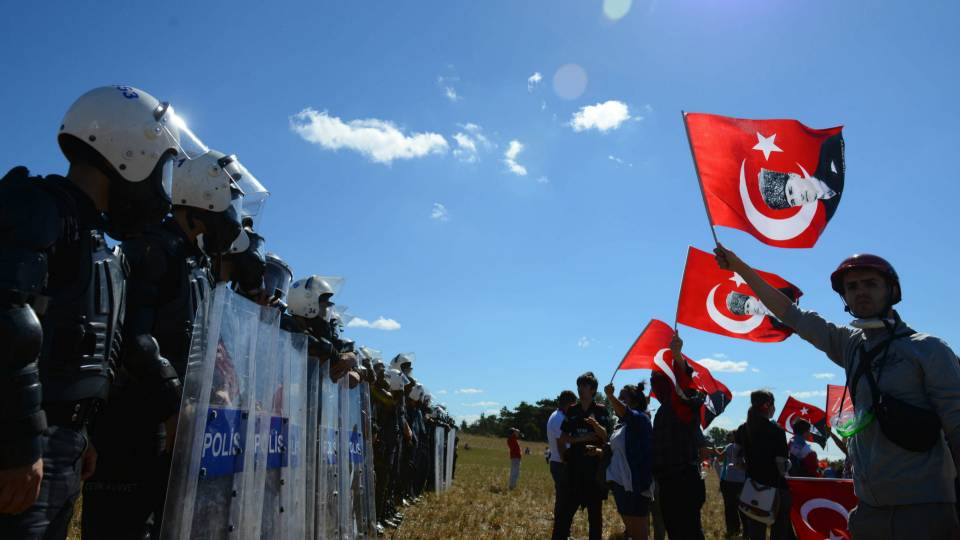The Turkish Military Coup Explained
As I write this, the world is watching in shock and confusion as a military coup unfolds in Turkey.
Many are left grasping for answers, unsure of the military's motivations.
Interestingly, an article published in March on the American Enterprise Institute's website considered the possibility of a military coup transpiring in Turkey.
Its author, David Rubin, explains Turkey's predicament:
It’s not just the deterioration in security amidst a wave of terrorism. Public debt might be stable, but private debt is out of control, the tourism sector is in free-fall and the decline in the currency has impacted every citizen’s buying power.
There is a broad sense, election results notwithstanding, that President Recep Tayyip Erdogan is out of control. He is imprisoning opponents, seizing newspapers left and right and building palaces at the rate of a mad sultan or aspiring caliph. In recent weeks, he has once again threatened to dissolve the constitutional court.
Corruption is rife. His son Bilal reportedly fled Italy on a forged Saudi diplomatic passport as the Italian police closed in on him in an alleged money laundering scandal.
His outbursts are raising eyebrows both in Turkey and abroad. Even members of his ruling party whisper about his increasing paranoia which, according to some Turkish officials, has gotten so bad that he seeks to install anti-aircraft missiles at his palace to prevent airborne men-in-black from targeting him in a snatch-and-grab operation.
In light of such evidence, the current military coup is somewhat understandable. Moreover, Erdogan has been guiding Turkey in an increasingly Islamic direction, whereas the Turkish army is more interested in upholding secularism.
It's also worth noting that Turkey has a long and colorful history of military coups.






















